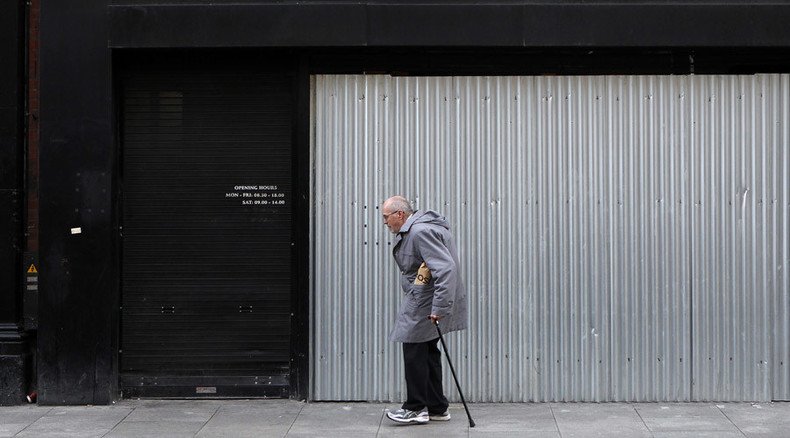Poverty & inequality costs 550 lives each day in UK

Some 200,000 people in Britain are dying before their time as a result of poverty and social inequality, a top medic has warned.
Sir Michael Marmot, who advised the 2010-15 Tory-Lib Dem government on the link between wealth and health, says an increasing body of research shows a sharp social gradient emerging.
Critics have long condemned inequality in Britain. Since 1980, the proportion of total income received by the top-earning one percent of Britons has doubled – reversing a previous three-decade trend toward greater equality.
Studies show the poor die on average seven years before their wealthy counterparts, and can expect to become disabled a full 17 years earlier.
Meanwhile, those who are defined as middle class have life expectancies of eight years less then society’s most wealthy.
Professor @MichaelMarmot explaining evidence based approach to closing the Health Gap at his Masterclass @MerseyFirepic.twitter.com/HGUC811csh
— Anees Mank (@AneesMank) September 9, 2015This trend shows no sign of abating, with poverty and social exclusion on the rise. At least 8.1 million parents and children currently lack the income they need to sustain a minimum household budget – up over 34 percent since 2009.
Reflecting on the link between human health and wealth, Marmot said the field of education is a telling indicator of social exclusion.
“If everybody had the same mortality of those with a university education, then we could prevent 202,000 premature deaths of people aged 75 and under each year,” he said.
“If this was caused by a pollutant, there would be people on the streets saying ‘stop it now.’ The irony is that the cause is pinpoint-able.”
“It is the inequalities in the conditions [in which] we are born, grow, live, work and age, and it’s damaging the health of us all. It is costing us 550 lives a day in the UK alone.”
In his latest book, The Health Gap, Marmot suggests those who blame poor lifestyles on premature death miss the point.
“Over 30 years, smoking levels have declined while obesity has soared. Have we become more responsible when it comes to smoking and less responsible when it comes to obesity? No,” he writes.
BBC News picks up a theme from "The Health Gap", my new book - Why firefighters could save the NHS http://t.co/p8EkUX5jX8
— Sir Michael Marmot (@MichaelMarmot) September 10, 2015Marmot, who will soon become president of the World Medical Association, condemns the austerity agenda of many politicians.
Reflecting on the current economic climate, he says a further £200 million cut to public health budgets would prove disastrous. He also questions the government’s proposal to raise the pension age, warning that almost two-thirds of 68 year olds in England have a disability that could prevent them from working.
The government says the reduction of health inequality is central to its work.
“We want everybody to have the same opportunity to live a long and healthy life, no matter who they are or where they live,” a Department of Health spokesperson said.
“Reducing health inequality is central to the Department’s work, including in our efforts to reduce smoking and tackle obesity, but it is also integral to the work of local authorities who have a leading role on public health in their local area.”
Recent research indicates the average British man can expect to remain in good health until the age of 64, while British women are expected to thrive until the age of 66. However, life expectancy figures in the UK are misleading because they mask inequality.
In July, a report produced by the Institute of Fiscal Studies (IFS) found the majority of children living in poverty in the UK come from working families. The IFS said this dramatic rise in what has been described as Britain’s working poor was a result of increased unemployment levels and a steady decline in workers’ real wages.
Another report published by racial equality group the Runnymede Trust found the latest phase of the government’s austerity agenda leaves ethnic minority Britons twice as likely to lose out economically as their white counterparts. It also predicted child poverty among these groups will grow as the Conservatives push ahead with further welfare cuts.












